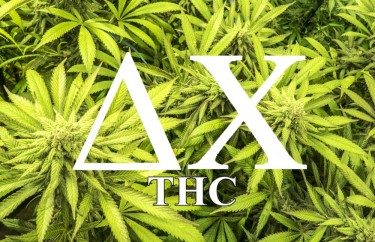
What is the difference between Delta-8 and Delta-9 THC?
Since the US Department of Agriculture (USDA) implemented the 2018 Federal Farm Bill, the government has given a new level of gatekeeping to the cannabis world. Delta-8 THC was loved or despised by aficionados and traditional law enforcement agencies (Delta-9 THC). Delta 9 fans often complain that this is “fake weed”. And the law is mad that there is a loophole in the law that allows citizens to get high. Meanwhile, Delta-8 fans are only grateful to have a legal option. Then a year or two goes by; Now we all know that Delta-8 THC is gaining a brand new following, preferring D8 over D9. Why can’t you be happy for us? Don’t we all want to get legally high? And really, what’s the difference between Delta-8 THC and Delta-9 THC?
Delta 8 THC
Delta-8 THC is a cannabinoid that is similar to its cousin Delta-9 THC, but with a few key differences. It is an analog of tetrahydrocannabinol (THC) that still has important antiemetic, anxiolytic, appetite stimulating, analgesic and neuroprotective properties like Delta-9. Delta-8-tetrahydrocannabinol is a psychoactive cannabis plant, both hemp and marijuana. Delta 8 is federally legal here in America, but not in all states (for reasons we’ll talk about later).
To meet federal guidelines in the 2018 Farm Bill, Delta-8 must be derived from hemp and maintain a Delta-9 concentration of less than 0.3%. Delta-9 THC is illegal here in Georgia because Delta-9 THC is marijuana.
The 2018 US Farm Bill legalized the production of hemp and its derivatives, which means that Delta-8 THC extracted from hemp is legal. But federal law also prohibits anyone from using synthetic THC; there is no specificity as to what form of THC can or cannot be synthesized; it was written with the assumption that delta-9 THC, or traditional marijuana, is the only form of THC in existence. Delta-8 falls into a regulatory gray area because hemp can get it, and so does all of the smaller cannabinoids on the market – Delta-10, THC-O, THCv, and HHC.
Since Delta-8 is not as potent as Delta-9, the most abundant THC found in marijuana, the rules regarding legality are less clear. It’s possible to get delta-8-THC from the rich CBD of hemp through chemical processing, which poses a tricky legality problem.
Another problem the industry has faced is that no federal laws yet prohibit the production of Delta-8. It is a legal product that can be sold as long as it is made from hemp and has a percentage of 0.3% or less of Delta-9-THC. Therefore, Delta-8 products like Delta-8-Blume are more often found in the same legal category as CBD products. The CBD industry is not regulated, however, which makes way for a vulture-like market. Unregulated markets will always be frowned upon in America because of the past. ATLRx separates the past from the present by being transparent; Research is required before trying any Delta 8 market products.
Delta-8 occurs in trace amounts from a cannabis plant, which means that it is not economically feasible to extract it directly from multiple cannabis plants. Large amounts of D8 are converted from CBD or cannabidiol. Delta 8 companies work with a distillate that includes an extraction process. However, that does not excuse neglecting the necessary measures to protect your customers. ATLRx complies with federal regulations in recreational states such as Colorado and Oregon. We use DEA certified lab tests, QR codes and won’t let new products touch the shelves until the test is flawless. There are options to take, so there are no excuses.
Delta 9 THC
Delta-9-tetrahydrocannabinol, better known as marijuana, was first isolated from Lebanese hashish in 1964 by Israeli chemist Rafael Meshulam. Delta-9 is naturally produced in cannabis and cannabis plants, and Delta-8 and Delta-9 are both forms of THC. But when people talk about THC in general, they are referring to Delta-9, which refers to traditional marijuana.
THC has many different components, Delta 8 and Delta 9 of which are very similar in molecular structure, both of which interact with the endocannabinoid system or the ECS, which gives us its medicinal properties. Delta 9 binds to CB-1 receptors in the brain, which leads to psychoactive effects such as euphoria, relaxation, willingness to talk and laughter. On the other hand, if it’s too strong, it can cause anxiety and paranoia. Both Delta-9 THC and Delta-8 THC have a euphoric effect; there is a difference in their intensity. Delta-9 is about 40% stronger than Delta-8. However, d8 is less likely to cause paranoia. Users who have developed higher levels of THC tolerance generally prefer the levels that Delta-9 offers. The two have similar properties, such as potentially appetizing, analgesic, or sleep-inducing, but delta-8-THC is said to have less psychoactive effects than delta-9-THC.
But most people, especially those new to THC or just looking for it for its medicinal benefits, prefer Delta-8 because of its lower potency. It makes paranoia less likely and leaves room for individuals to enjoy the euphoria without paranoia. It’s more stable and milder than its strong cousin Delta-9 THC. Many of the less desirable effects of THC, such as paranoia and anxiety, are lessened when mixed together. CBD is a great way to cut a high and get you into normal headspace. When CBD is added to Delta-8, it further reduces the psychotropic effects, which is why you get the benefits of Delta-8 along with CBD with little or no effect. The most significant difference between CBD and Delta-8 is their non-psychoactive and psychoactive properties.
Extractors and manufacturers have started isolating this cannabinoid, converting CBD to Delta-8, and moving on to discover a wide variety of cannabinoids, including the psychoactive THC-O.
After fractionation, the rapid heating, cooling, and evaporation will help disconnect the plant. Hence, extractors and manufacturers have started isolating this cannabinoid and converting hemp-derived CBD into delta-8 distillate; As a distillate, it is flexible for all types of consumption, Delta 8 gummies, vape cartridges, concentrates and pralines.
Delta-9-tetrahydrocannabinol is by far the best known of these cannabinoids, but it is certainly not the only potent chemical found in the cannabis flower. Because Delta-8 has a different structure, it produces less noticeable effects than Delta-9-THC. However, more research is needed to better understand the effects of Delta-8. The consensus is that the strength of Delta 8 is about 60 percent of the equivalent dose of Delta 9, which slightly minimizes the potential for psychological effects. All forms of THC are stimulant, depressive, and hallucinogenic. Delta-8-THC is unlikely to cause anxiety, paranoia, increased heart rate and blood pressure, known side effects of Delta-9-THC.
The CB1 receptor in ECS is believed to regulate the mental effects of THC, so the difference in molecular binding between delta-8-THC and delta-9-THC is significant for consumers.
In conclusion, through these studies, we can see that Delta-8 THC can contribute to clearer and less anxiety, and help reduce pain and inflammation, stimulate appetite, suppress nausea, and is generally a more manageable option. We’d love to see both Delta-8 and Delta-9 served in harmony under the same pharmacy roof. We do not know exactly what the future may bring. While constitutional states have often defamed the Delta-8 industry as unethical, against a code of honor, and without federal regulation, it is not viewed as an alternative. We are aware that it is not the truth. Delta-8 is seen as a competing market for Delta-9 because it eliminates the adverse side effects such as paranoia and anxiety.
DELTA-THCs ARE HERE, READ MORE …

WHAT IS DELTA-10 THC AND WHY SAY IT IS THE FUTURE OF WEED?
OR..

WHAT’S THE DIFFERENCE BETWEEN DELTA-9 AND DELTA-10 THC?

Post a comment: